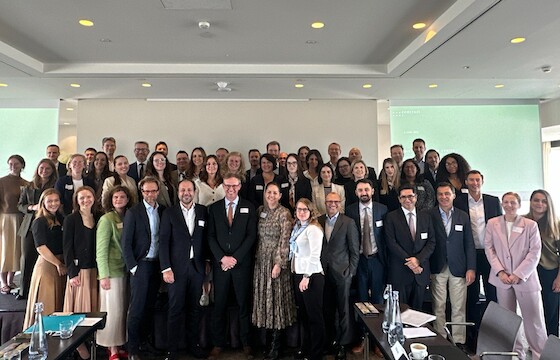No official English translation available.
Art. 1.
Om ett villkor som en näringsidkare ställer upp när han eller hon ingår eller avser att ingå avtal med en annan näringsidkare är att anse som oskäligt mot denne, får Patent- och marknadsdomstolen förbjuda näringsidkaren att i fortsättningen ställa upp samma eller väsentligen samma villkor i liknande fall. Ett sådant förbud får också riktas mot någon som är anställd hos näringsidkaren eller mot någon annan som handlar på näringsidkarens vägnar.
Första stycket gäller även villkor som en myndighet eller ett annat offentligt organ ställer upp för ett avtal med en näringsidkare enligt vilket han eller hon ska tillhandahålla varor eller tjänster mot betalning.
Lag (2016: 204).
Art. 2.
Vid bedömningen av om ett avtalsvillkor är att anse som oskäligt skall särskild hänsyn tas till behovet av skydd för den som intar en underlägsen ställning i avtalsförhållandet.
Förbud skall meddelas endast om det är påkallat från allmän synpunkt.
Art. 3.
Frågor om förbud tas upp efter ansökan. En sådan ansökan får göras endast av en sammanslutning av näringsidkare, av en annan sammanslutning som har ett befogat intresse av att företräda näringsidkare eller av en enskild näringsidkare mot vilken det aktuella avtalsvillkoret har ställts upp.
Lag (2002:354).
Art. 3a.
Om en sammanslutning av näringsidkare gör sannolikt att utgången i målet kan ha betydande intresse för medlemmarna i sammanslutningen, får domstolen efter ansökan av sammanslutningen tillåta att den, vid sidan av en enskild part, medverkar i förfarandet och i samband med det åberopar bevisning.
En ansökan om medverkan ska vara skriftlig och innehålla de skäl som den grundas på.
Parterna ska beredas tillfälle att yttra sig över ansökan. Ansökan får inte bifallas om parten på den sidan som ansökan om medverkan avser motsätter sig detta.
Lag (2016:204).
Art. 4.
Beslut i fråga om förbud hindrar inte att samma fråga prövas på nytt, om ändrade förhållanden eller något annat särskilt skäl föranleder det
Art. 5.
Förbud ska förenas med vite, om det inte av särskilda skäl är obehövligt.
En talan om utdömande av vite förs vid Patent- och marknadsdomstolen av den som har ansökt om förbudet.
Lag (2016: 204).
Art. 5a.
Delgivning av domar och beslut som innefattar ett vitesföreläggande får ske enligt 34–37 §§ delgivningslagen (2010:1932) endast om det med beaktande av vad som har framkommit i det enskilda delgivningsärendet eller vid andra delgivningsförsök med delgivningsmottagaren finns anledning att anta att han eller hon har avvikit eller på annat sätt håller sig undan.
Lag (2016:204).
Art. 5b.
I mål enligt 1 § får rätten bestämma att vardera parten ska svara för sina rättegångskostnader.
Lag (2016:204).
Art. 6.
Lagen tillämpas inte i fråga om en tjänst som tillhandahålls av en näringsidkare som är etablerad i en annan stat än Sverige inom Europeiska ekonomiska samarbetsområdet (EES).
Lag (2009:1088).
Art. 7.
Vid handel med varor eller tjänster gäller det som sägs i denna lag om avtalsvillkor också för praxis som utbildats mellan parterna, handelsbruk och annan sedvänja avseende betalningstid, dröjsmålsränta eller ersättning för indrivningskostnader.
Lag (2013: 57).







